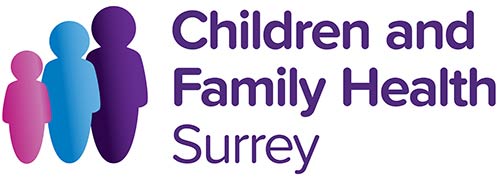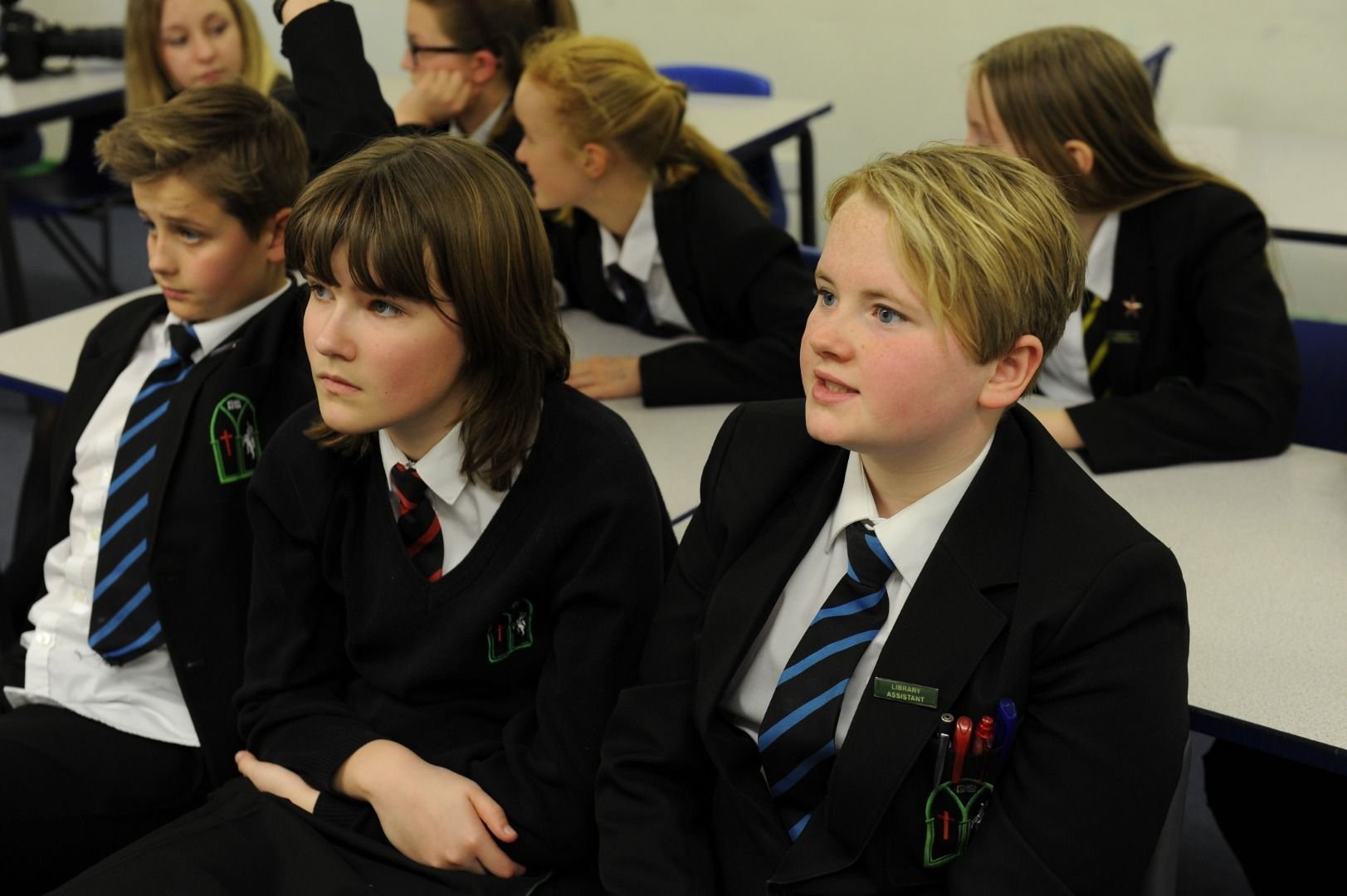Our Immunisation team is responsible for the planning and delivery of the school-age immunisation programmes in Surrey. The vaccination programmes are primarily carried out in schools, although we also offer clinics in other community settings for home-educated children and other children depending on their individual needs.
Our team is made up of registered nurses and administrators. We cover all schools in Surrey, as well as any children who are home educated.
Routine vaccinations are offered free of charge on the NHS to all eligible children and young people in the UK. The national immunisation programme has meant that dangerous diseases have disappeared but these diseases could come back – they are still around in many countries throughout the world.
In the UK, such diseases are kept at bay by the high immunisation rates and this is why it’s so important for us to protect young people against a range of diseases such as polio, cancers, tetanus and diphtheria and meningitis.
Babies and pre-school children receive immunisations through their GP surgery. The vaccination schedule for babies and young children is available on the NHS website including a measles webpage and a MMR (measles, mumps and rubella) vaccine webpage.
All children at primary school are offered a nasal spray vaccine to protect them against the flu as part of the NHS childhood vaccination programme.

This is delivered within schools by our Immunisation teams.
The flu vaccine for children is needle-free and is given as a single dose that is sprayed up each nostril. It is quick and painless and will mean your child is less likely to become ill if they come into contact with the flu virus.
The nasal spray is more effective than the injected flu vaccine, especially in young children, which is why children are now routinely offered the nasal spray rather than the flu jab.
Flu can be very unpleasant for children. They have the same symptoms as adults – including fever, chills, aching muscles, headache, stuffy nose, dry cough and sore throat lasting up to a week. Some children develop a very high fever or complications of flu such as bronchitis, pneumonia and painful middle ear infection. They may need hospital treatment, and very occasionally, a child may die from flu.
The nasal spray vaccine contains flu viruses that have been weakened to stop them causing flu. It will help your child build up immunity to flu in a similar way as natural infection (but without the symptoms). Because the main flu viruses change each year, a new nasal spray vaccine has to be given each year, in the same way as the injectable flu vaccine. The flu vaccine for children has a very good safety profile. It has been widely used in the US for more than 10 years and no safety concerns have been raised so far.
Parents/carers receive an email about the immunisation at the start of the Autumn term. This will ask for e-consent for your child to be given the vaccine. The immunisation will then be done at school by the school nurse.
The nasal spray flu vaccine has very few side effects, the main one being that vaccinated children may have a runny nose for a short time afterwards.
The National Immunisation Programme for secondary schools includes:
- The HPV (Human Papilloma Virus) vaccine for 12-13 year old girls and boys in Year 8.
- The tetanus, diphtheria, and polio (Td/IPV) vaccine for 14-15 year old girls and boys in Year 9.
- Meningitis (Men ACWY) vaccine for 14-15 year old girls and boys in Year 9.
HPV Vaccine
The HPV vaccine has been offered to all girls in school year 8 for over ten years. From September 2019, the vaccine has been offered to year 8 boys. This is because the evidence is clear that the HPV vaccine helps protect both boys and girls from HPV-related cancers.
The HPV vaccine helps protect against infection by the human papillomavirus (HPV).
This virus increases the risk of developing some cancers later in life, such as: cervical cancer, some mouth and throat cancers and some cancers of the anus and genital areas.
What difference has the HPV vaccine made so far?
More than 80 million people have received the vaccine worldwide. In time it is expected that the vaccine will save hundreds of lives every year in the UK. A recent Scottish study has already shown a 71% reduction in pre-cancerous cervical disease in young women. Since the start of the vaccination programme in the UK there has been a big decline in the number of young people with genital warts.
Meningococcal ACWY, diphtheria, tetanus and polio vaccines
When you are having your Td/IPV boosters and Men ACWY vaccine, it's a good idea to check with the nurse or doctor that all your other immunisations are up to date (for example, MMR (measles, mumps and rubella), and, for some people, hepatitis B).
It's particularly important to check that your MMR immunisation is up to date because some teenagers have not had two doses of MMR.
Tetanus, Diphtheria, Polio (Td/IPV)
This is given in Year 9 so is sometimes called the school leaver’s booster.
Tetanus is a painful disease affecting the nervous system and is caused when germs found in soil and manure get into the body through open wounds.
Diphtheria is a serious disease that often begins with a sore throat. It can damage the heart, nervous system and in severe cases may kill.
Polio is a virus that attacks the nervous system and can cause paralysis of the muscles; if it affects the chest muscles or brain it can kill.
You need five doses of tetanus, diphtheria and polio to build up and maintain immunity.
Meningitis ACWY
This is given in Year 9. This vaccine protects against the four main groups of meningococcal bacteria that can cause meningitis (infection of the layers that surround the brain and spinal cord) and septicaemia (blood poisoning). Meningococcal disease is rare but really serious and can lead to amputation, hearing loss, brain damage and scars.
E-consent
E-consent forms and information leaflets are sent out via your child's school at the appropriate time. Young people in secondary school who are assessed as competent by nurses can legally self-consent for any immunisation.
The nurse will check the e-consent form and ensure your child is well and able to have their immunisations that day. If your child is unwell or absent, we will write to you regarding a new appointment.
Before your child’s planned immunisation session, you will receive an email from your child's school about giving e-consent for your child's vaccination. The email will include a unique code for your child's school so you can complete the e-consent form.
If your child is needle phobic, highly anxious or you are worried about anything, please contact your local immunisation team.
If your child has missed their vaccination at school, please call the relevant phone number below to book an appointment at a catch-up clinic.
Dates, venues and telephone numbers are listed below.
|
Thursday 23/01/2025 |
Leatherhead Hospital Poplar Road, Leatherhead KT22 8SD |
020 8394 8153 |
|
Saturday 25/01/2025 |
Woking Clinic Goldsworth Park Health Centre, Denton Way, Woking, GU21 3LU |
01483 794887 |
|
Tuesday 28/01/2025 |
Leatherhead Hospital Poplar Road, Leatherhead KT22 8SD |
020 8394 8153 |
|
Tuesday 04/02/2025 |
Woking Clinic Goldsworth Park Health Centre, Denton Way, Woking, GU21 3LU |
01483 794887 |
|
Thursday 06/02/2025 |
Ashford Clinic 66 Stanwell Road, Ashford TW15 3DU |
020 8394 8153 |
|
Thursday 06/02/2025 |
Leatherhead Hospital Poplar Road, Leatherhead KT22 8SD |
020 8394 8153 |
|
Saturday 08/02/2025 |
Ashford Clinic 66 Stanwell Road, Ashford TW15 3DU |
020 8394 8153 |
|
Monday 10/02/2025 |
Guildford Clinic The Jarvis Centre 60 Stoughton Road, Guildford, GU1 1LJ |
01483 794887 |
|
Monday 10/02/2025 |
Walton Hospital Walton Community Hospital, Rodney Road, Walton-on-Thames KT12 3LD |
020 8394 8153 |
|
Tuesday 11/02/2025 |
Leatherhead Hospital Poplar Road, Leatherhead KT22 8SD |
020 8394 8153 |
|
Monday 17/02/2025 |
Leatherhead Hospital Poplar Road, Leatherhead KT22 8SD |
020 8394 8153 |
|
Wednesday 19/02/2025 |
Walton Hospital Walton Community Hospital, Rodney Road, Walton-on-Thames KT12 3LD |
020 8394 8153 |
|
Friday 20/02/2025 |
Ashford Clinic 66 Stanwell Road, Ashford TW15 3DU |
020 8394 8153 |
|
Saturday 22/02/2025 |
Woking Clinic Goldsworth Park Health Centre, Denton Way, Woking, GU21 3LU |
01483 794887 |
|
Monday 24/02/2025 |
Guildford Clinic The Jarvis Centre 60 Stoughton Road, Guildford, GU1 1LJ |
01483 794887 |
|
Tuesday 25/02/2025 |
Leatherhead Hospital Poplar Road, Leatherhead KT22 8SD |
020 8394 8153 |
|
Friday 28/02/2025 |
Egham Clinic The Grove Community Health Centre Egham TW20 9QJ |
01483 794887 |
|
Monday 03/03/2025 |
Walton Hospital Walton Community Hospital, Rodney Road, Walton-on-Thames KT12 3LD |
020 8394 8153 |
|
Tuesday 04/03/2025 |
Woking Clinic Goldsworth Park Health Centre, Denton Way, Woking, GU21 3LU |
01483 794887 |
|
Thursday 06/03/2025 |
Leatherhead Hospital Poplar Road, Leatherhead KT22 8SD |
020 8394 8153 |
|
Monday 10/03/2025 |
Guildford Clinic The Jarvis Centre 60 Stoughton Road, Guildford, GU1 1LJ |
01483 794887 |
|
Tuesday 11/03/2025 |
Leatherhead Hospital Poplar Road, Leatherhead KT22 8SD |
020 8394 8153 |
|
Saturday 15/03/2025 |
Farnham Hospital Hale Road Farnham GU9 9QL |
01483 794887 |
|
Tuesday 18/03/2025 |
Ashford Clinic 66 Stanwell Road, Ashford TW15 3DU |
020 8394 8153 |
|
Thursday 20/03/2025 |
Leatherhead Hospital Poplar Road, Leatherhead KT22 8SD |
020 8394 8153 |
|
Friday 21/03/2025 |
Egham Clinic The Grove Community Health Centre Egham TW20 9QJ |
01483 794887 |
|
Saturday 22/03/2025 |
Woking Clinic Goldsworth Park Health Centre, Denton Way, Woking, GU21 3LU |
01483 794887 |
|
Monday 24/03/2025 |
Walton Hospital Walton Community Hospital, Rodney Road, Walton-on-Thames KT12 3LD |
020 8394 8153 |
|
Tuesday 25/03/2025 |
Leatherhead Hospital Poplar Road, Leatherhead KT22 8SD |
020 8394 8153 |
|
Tuesday 25/03/2025 |
Guildford Clinic The Jarvis Centre 60 Stoughton Road, Guildford, GU1 1LJ |
01483 794887 |
|
Thursday 27/03/2025 |
Ashford Clinic 66 Stanwell Road, Ashford TW15 3DU |
020 8394 8153 |
|
Saturday 29/03/2025 |
Ashford Clinic 66 Stanwell Road, Ashford TW15 3DU |
020 8394 8153 |
Please visit the NHS website for further information.
You can find your child’s vaccination history, in their Red Book where early childhood immunisations should be recorded.
Alternatively, please contact your GP or your local immunisations team (contact details in the section below).
Please contact your local immunisation team:
- Mole Valley, Banstead, Spelthorne, Elmbridge, Epsom and Ewell boroughs: Epsom Clinic, Church Street, Epsom KT17 4PH. Tel: 020 8394 8153 Email: csh.eastimmsadmin@nhs.net
- Tandridge, Reigate, Redhill & Horley boroughs: Caterham Dene Hospital, Caterham. Tel: 01737 775 467 Email: fchc.immunisation.team@nhs.net
- Woking, Runnymede, Guildford & Waverley boroughs: Goldsworth Park Health Centre, Woking. Tel: 01483 794 887 Email: csh.sur-schoolimmswest@nhs.net


